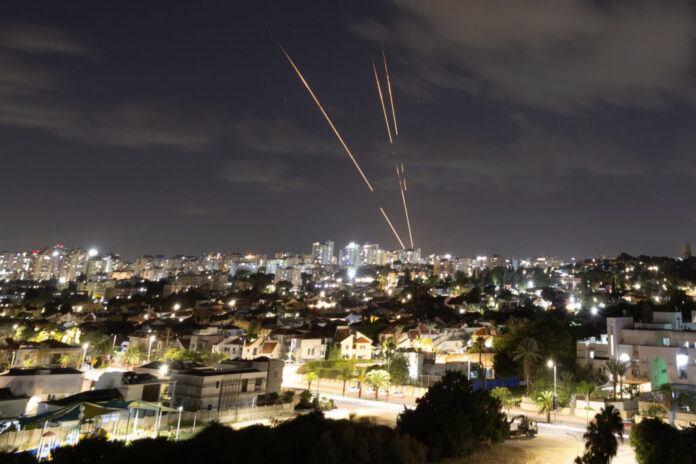By Hosea Parah, Abuja
On Tuesday, the Israeli military reported that Iran launched missiles targeting Israel, prompting nationwide air raid sirens and urging residents to seek shelter. In response, both Israel and the United States issued strong warnings of serious consequences if Iran were to carry out further attacks.
Israeli officials issued shelter-in-place orders via mobile alerts and national broadcasts, with sirens reported in cities including Jerusalem and central Israel. This incident followed a day of missile and rocket strikes from Lebanon, coinciding with Israel’s announcement of limited ground operations in the southern region of Lebanon.
In retaliation, Israeli airstrikes targeted villages in southern Lebanon, leading to evacuation orders. Hezbollah militants responded with a barrage of rockets aimed at Israel, raising fears of a broader regional conflict.
A senior White House official warned of “severe consequences” should Iran launch a ballistic missile at Israel, noting that U.S. naval and air assets are positioned in the region to support Israel. Citing intelligence concerns, the official requested anonymity.
Israeli military spokesman Rear Adm. Daniel Hagari emphasized the potential widespread impact of an Iranian strike and urged the public to stay close to shelters. He assured that Israeli air defense systems were on high alert, with U.S. forces closely monitoring developments in Iran.
This recent missile launch follows an earlier direct missile attack from Iran in April, during which many projectiles were intercepted by a U.S.-led coalition. A September analysis revealed that even those that reached Israel largely missed their targets.
As Rosh Hashanah, the Jewish New Year, approached on the evening of October 2, the Israeli military imposed new restrictions on public gatherings and closed beaches in light of the missile threats from Hezbollah. While Hezbollah denied that Israeli troops had entered Lebanon, Israel claimed multiple ground raids aimed at dismantling Hezbollah’s military capabilities.
Israeli forces released footage purportedly showing operations in areas where Hezbollah stored weapons, a significant blow to the Iran-backed militia already weakened by targeted strikes that eliminated several of its leaders.
U.S. military assets, including three Navy destroyers in the Mediterranean and an aircraft carrier in the Gulf of Oman, remain on standby to intercept any incoming missiles. Israel has advised civilians to evacuate areas north of the Awali River, which extends well beyond the U.N.-declared buffer zone along the Litani River.
In response to rising tensions, the Israeli army has restricted public gatherings and mobilized additional reserve troops to the northern border. Reports indicated Israeli troops in armored vehicles near the border, though confirmation of their entry into Lebanon was not established.
Recently, Israeli artillery targeted locations in southern Lebanon, while Hezbollah retaliated by firing rockets at central Israel, resulting in injuries. Hezbollah claimed to have launched a new medium-range missile at Israeli intelligence headquarters near Tel Aviv, marking a significant escalation in hostilities.
Despite sustaining heavy losses, Hezbollah vowed to continue its fight, with acting leader Naim Kassem stating that fallen commanders would be replaced. Meanwhile, European nations are starting to evacuate their citizens from Lebanon, with the U.K. organizing flights and positioning troops in nearby Cyprus for further evacuations.
As the conflict escalates, fears of a broader war in the Middle East involving Iran and the United States are increasing, with both sides preparing for a potentially extended confrontation.

